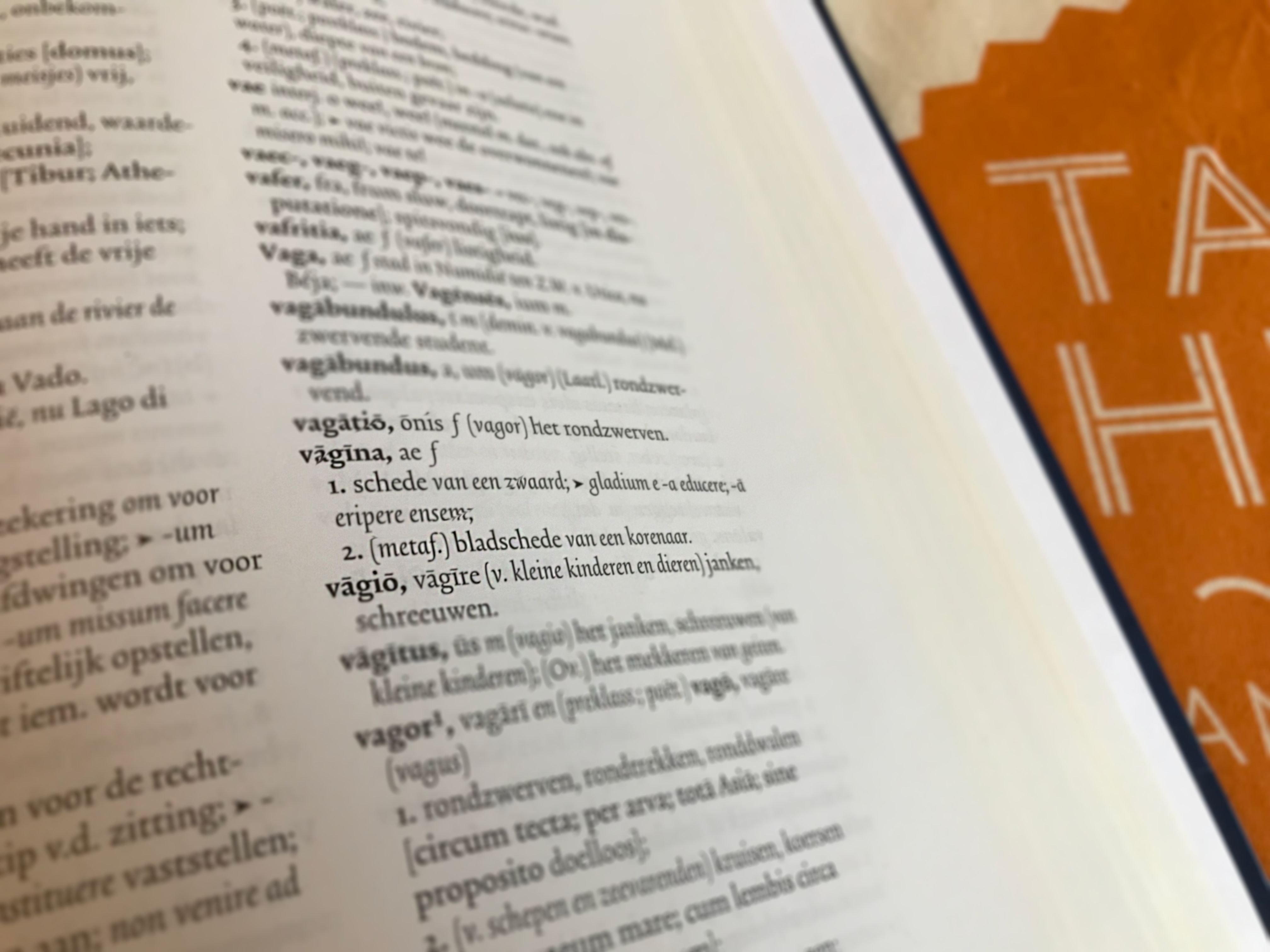In her next etymology workshop, taking place this Friday, linguist and language teacher Tato Martirossian tells us all about the origins of the words we use for love, sex and gender. In this blog she gives a sneak peek of this event.
A beautiful word. One short rounded vowel followed by the nasal n-sound, cocooned together in between two plosive consonants. Cunt. You can drop it like a bomb or extend it in the middle to hum it like a tune. It’s the oldest word for the female genitals in the English language, and it predates the decent vagina, but unlike this ‘proper’ loanword from Latin, the old cunt was denied entry to the Oxford English Dictionary until the 70’s. On the other hand, it has been given the cryptical definition ‘a nasty word for a nasty thing’ by lexicographer Francis Grose, it has been described as ‘the most heavily tabooed word of all English words’ by writer Hugh Rawson and it has been crowned ‘the most offensive word on TV’. Even those of us who swear like sailors cringe at cunt. What has cunt done to us to deserve such disdain?
First things first: where did cunt come from? Actually, its etymological origin is one of the mysteries of the cunt. We know that it’s related to the Dutch kut and to other Germanic variants, but we don’t really know where it comes from. Some etymologists have suggested the Proto-Indo-European root *gwen ‘woman’ as its origin (which has produced the words ‘queen’ and ‘gynaecology’ among others), others have linked it to the root *gene ‘to give birth, create’ (from which we have ‘genetics’ and ‘genesis’ for example). Another theory connects it to the Latin cunnus (you know this word from ‘cunnilingus’), but this connection seems to have some linguistic problems (check out this article by a cunning linguist for the details). Finally, a strong case has been made for the etymological origin of cunt in a word meaning ‘a little house’ – a common metaphor for the female sex organ in various languages.
Now let’s talk about the usage (in language, I mean) of ‘the little house.’ First of all, the c-word, as we call it now euphemistically, wasn’t offensive in medieval times. It was a descriptive term that could show up casually in medical texts. The very first citation of cunt dates to 1230, and is in the name of a street in the heart of London: Gropecuntlane. It was common for medieval street names to reflect their function or activity taking place within them, so you had the Fish Street and Silver Street where the obvious corresponding goods were sold and you had the Gropecuntlane, in the red light district, where the obvious activity was taking place. Medieval literature was strewn with cunts, but around Shakespeare’s era they were starting to be censored – not that Shakespeare shied away completely from cunts, he simply sneaked them in through innuendo’s and cheeky hints. The naughty bard.
Why has the word ‘cunt’ become such a taboo? It’s sex related, that’s one thing. But according to linguists like Anatoly Liberman its taboo reputation doesn’t have so much to do with chastity, but with the idea that naming things could have a concrete effect in the real world (just like we don’t mention certain Gods or diseases by name, because bad things could happen). In addition, cunt was replaced by vagina under the influence of Latin, which was seen as a more refined language – just like other native English monosyllables such as shit (by faeces or excrement) and fuck (by coitus and intercourse). The word ‘monosyllable’ itself even was a euphemism for cunt.
Cunt: a ‘little house’ that has been around in the English language since forever and that has been recorded in literature since the Middle Ages. Now let’s turn to the competition: vagina. Brought in from Latin by male anatomists in the 17th century as a medical term, literally meaning ‘a scabbard,’ something you put a sword in. A term for the female sex organ completely depending on the penis for its semantics – a ‘cock holder’. Also, it actually only refers to the internal canal to the uterus.
Is that really our best option to avoid the word cunt? What about the other candidates? Pussy, vulva, vajayjay, punani, ‘down under,’ coochie, twat, fanny…? The cunt may cause offence, but at least it’s honest and authentic. And maybe, as feminist Germaine Greer has concluded, our resistance to use it means that it’s simply too powerful of a word.
Curious for more? Join Tato’s etymology workshop this Friday!


